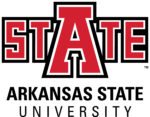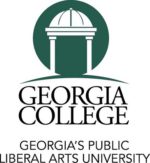 Selecting an accelerated affordable online MBA program will not only help you as a busy professional needing to juggle work, family and coursework, but it will also set you apart from the competition on your resume. In fact, because an accelerated program is a challenging endeavor, it says a lot about you, your leadership, work ethic, and commitment—factors that will make you stand out in today’s competitive business world.
Selecting an accelerated affordable online MBA program will not only help you as a busy professional needing to juggle work, family and coursework, but it will also set you apart from the competition on your resume. In fact, because an accelerated program is a challenging endeavor, it says a lot about you, your leadership, work ethic, and commitment—factors that will make you stand out in today’s competitive business world.
Global thinking, social responsibility, and industry perspective are among the practices that a career-focused MBA program will prepare you for. While an MBA program will indeed give you the practical business knowledge and skills you need for strategic leadership, why not align your learning to your career goals by pursuing a specialization in supply chain management? An advanced degree in this field will further distinguish you and definitively give you a competitive edge.
Featured Programs
Supply chain management is a vital process that, if managed efficiently, will make the difference between the success and failure of a business. Supply chain management is concerned with all the interconnected steps involved in providing an end product or service to a customer.
The curriculum generally focuses on strategies to integrate all the components of the distribution chain, reduce costs, identify key performance indicators, and improve customer service. Some of the programs mentioned in this ranking may vary slightly and include logistics as a focus as well. Logistics management, a specialization within the context of the supply chain management, is concerned with operations planning, storage of goods, services, distribution and transportation from the point of origin to the end destination.
According to the United States Department of Labor, “the performance of a company’s logistical and supply chain process is an important factor in a company’s profitability.” Forbes lists the “Supply Chain” industry in the top 20 for steady growth. Employment opportunities are growing faster than expected with a 25% projected increase over the next few years. As a matter of fact, the U.S. predicts a shortage of qualified managerial workers in the field. Additionally, a master’s degree in this competitive, high-growth job market can mean a sharp increase in salary over a bachelor’s degree. Overall, professionals holding specialized advanced degrees in supply chain management tend to have higher salaries than bachelor’s holders. For instance, based on a recent survey, the average salary of supply managers with a bachelor’s degree in the field was $95,931 while it was $128,127 for those with a master’s degree. Logistics and supply chain managers may work for a wide range of industries that include large-scale retailers, air cargo, package delivery, warehousing, distribution, transportation, manufacturing, and construction. More specifically, here is a list of positions that such a degree will prepare you for: execution and control operations, resource and information planning, supply chain integration and improvement, customer relationship management, supplier relationship management, lean/six sigma quality initiatives, risk modeling and forecasting, sustainability processes, and global operations.
For your convenience, we narrowed your search by selecting the best online MBA programs according to the following three metrics:
Methodology:
- Affordability (1/3): Combined analysis of overall tuition of the program, financial aid or scholarship assistance programs, and estimated cost per credit hour for in-state and out-of-state students.
- Flexibility (1/3): The number of flexibility-enhancing elements specific to the degree program including teaching philosophy concentrations, degree specialties, prior learning or life experience credit options, accelerated or self-paced courses, personalized student advisement/guidance, and competency-based credit options.
- Academic Prestige (1/3): The academic prestige of the parent institution operationally defined through the analyses of rankings and reviews of prominent education review entities such as US News & World Report and The Princeton Review.
1. University of South Dakota

The University of South Dakota (USD), founded in 1862, is South Dakota’s oldest collegiate institute and only public liberal arts university. Although the surrounding region is extremely rural, the city of Vermillion hosts the beautiful campus amongst its historic and modern buildings. This mixture of history and modernity parallels USD’s ability to remain a foundation of the Dakotas’ higher education system while maintaining an edge in technological innovation. With institutional accreditation by the Higher Learning Commission of the North Central Association of Colleges and Schools, USD ranked 110th best overall in U.S. News National Best College List 2017. Considering it also received the “Best Value” accolade from Forbes magazine in 2013, USD ranks #1 on our list for its combination of academics and affordability. The university enrolls approximately 7,500 undergraduate and 2,500 graduate students.
The Online MBA requires 18 credit hours of MBA Foundation courses, 27 credit hours of core courses, and at least 6 credit hours of electives. USD’s program offers 9 credit hours of specialized Operations and Supply Chain courses split across three concentrations: project management, lean management, and data management and warehousing. With slightly more than 400 faculty members, University of South Dakota offers a 17-to-1 student-faculty ratio where 32% of classes cater to less than 20 students.
- Homepage
- Out-of-State Tuition Per Credit: $442
- Program Length: 45 – 54 hours
- Flexibility-Enhancing Components: accelerated and 3 concentrations
2. Fontbonne University

Fontbonne University (FU), founded in 1923, is one of Missouri’s top private, co-ed, Catholic institutions. The Clayton campus is located in the suburbs of St. Louis, thus offering students a safe educational environment with easy access to St. Louis’ urban epicenter. While it first opened its doors as an all-female institution, FU has admitted male students since 1960. FU ranked 91st best “Regional University Midwest” in U.S. News National Best College List 2017. The university is built on strong principles and offers a value-based environment where quality, respect, diversity, community, justice, service, faith, and Catholic presence are paramount. Most notably, the university enrolls approximately 1,700 students and offers an extremely intimate and personal educational setting.
Fontbonne University’s Online MBA requires 24 credit hours of core courses and 6 credit hours of electives split across three concentrations: accounting, management and leadership, and nonprofit management. The program will prepare students to pass the Council of Supply Chain Management SCPro Level One Certification exam with flexible, 8-week course formats. Notably, Fontbonne University offers an 11-to-1 student-faculty ratio where 82.7% of classes cater to less than 20 students.
- Homepage
- Out-of-State Tuition Per Credit: $703
- Program Length: 30 hours
- Flexibility-Enhancing Components: Supply chain management certificate
3. Embry-Riddle Aeronautical University

Embry-Riddle Aeronautical University (ERAU), founded in 1926, is the world’s largest fully-accredited university specializing in aviation and aerospace with over 125 campuses worldwide. Major U.S. campus locations include Daytona Beach, FL and Prescott, AZ. ERAU ranks as the best “Undergraduate Aerospace Engineering” college in U.S. News & World Report and 12th best “Regional University South” in U.S. News National Best College List 2017. ERAU offers a rare combination of prestige, flexibility, and affordability with an online program that is ranked best in the U.S. for “Online Education” by College Choice and ranked within the top 1% of all U.S. private universities for “Return on Investment” by Affordable Colleges Online. The university enrolls approximately 5,300 students.
ERAU Worldwide’s program requires 30 credit hours and is designed specifically to suit the schedules of active professionals by offering a flexibility including: twelve enrollment dates per year, generous credit-transfer programs, and a choice of five modes of learning. The program focuses on management of supply chain logistics such as sourcing and procurement, conversion, and management. Classes are taught by industry professionals which, according to U.S. News & World Report, are among the “Top Online Educators” in the nation.
- Homepage
- Out-of-State Tuition Per Credit: $496
- Program Length: 30 hours
- Flexibility-Enhancing Components: certificates, Military-Friendly
4. Arkansas State University

Arkansas State University (A-State), founded in 1909, is Arkansas’ cutting-edge research university committed to science-based economic development at affordable costs. A typical Midwestern town, Jonesville is the fifth-most populous city in Arkansas and serves as the regional center for manufacturing, agriculture, medicine, education, and trade. With institutional accreditation by the Higher Learning Commission of the North Central Association of Colleges and Schools, A-State ranked 59th “Regional University South” in U.S. News National Best College List 2017. A-State offers exceptional financial aid plans with 85% of full-time undergraduates receiving an average of $10,000 in need-based aid while 50% of all students have their financial aid needs fully met. The university enrolls approximately 14,000 students.
Arkansas State University’s College of Business is among the less than 20% of business schools worldwide with the prestigious AACSB Accreditation. The Online MBA requires 27 credit hours of core courses, 6 credit hours of electives split across fieldelated courses or an internship, and a Strategic Management course. Additionally, A-State’s program offers a specialization in Supply Chain Management for an additional 12 hours. On top of an appealing 17-to-1 student-faculty ratio where 50 percent of classes cater to less than 20 students, Arkansas State University offers Structured Learning Assistance—a service that provides academic support for challenging classes.
- Homepage
- Out-of-State Tuition Per Credit: $257
- Program Length: 33 hours
- Flexibility-Enhancing Components: Structured Learning Assistance program
5. Arizona State University

Arizona State University (ASU), founded in 1885, is one of the largest public universities in the United States and the most name-worthy university on our list. Based in Tempe, ASU has a massive, state-of-the-art campus and sponsors an extensive fraternity and sorority system. ASU ranked best in the nation for “Innovation” in US News National Best College List 2016 & 2017. Programs are geared towards improving the life of diverse groups represented on campus regardless of gender, ethnicity, religion, or sexual orientation. The university enrolls approximately 98,000 students.
Arizona State University’s W. P. Carey School of Business is also AACSB-Accredited. The Online MBA is the most demanding on the list, requiring 52 credit hours over 21 months. However, the program is extremely flexible and offers self-paced, 5-week courses. Most importantly, W. P. Carey Online MBA ranks 10th best in the U.S. for “Graduate Employability” in The Global University Employability Survey and 5th best in the nation for “Top-Ranked, Affordable Online MBA Programs” in U.S. News & World Report. With over 3,300 faculty members, Arizona State University still manages to offer a 23-to-1 student-faculty ratio where 40% of classes cater to less than 20 students.
- Homepage
- Out-of-State Tuition Per Credit: $1000
- Program Length: 52 hours (21 months)
- Flexibility-Enhancing Components: Five weeks per course
6. Georgia College & State University

Georgia College & State University (GCSU), founded in 1889, is one of the South’s leading public liberal arts colleges, offering 27 undergraduate degrees and over 25 graduate programs. Only 2 hours from the entertainments of Atlanta, GCSU sits on a beautiful and historic campus in semiural Milledgeville, GA. Notably, Georgia College currently ranks 8th “Top Public School, South” in U.S. News & World Report. The university enrolls approximately 7,000 students.
Georgia College & State University’s Online MBA program is also AACSB-Accredited and ranked 22nd best “Online Master of Business Administration” in U.S. News & World Report 2016. GCSU’s Logistics and Supply Chain Management specialization requires 21 credit hours of core courses and 9 credit hours of electives. The program will prepare students for a career in supply chain with course offerings including: Supply Chain Management Strategy, Logistics Processes & Management, Logistics Quantitative Methods, Purchasing & Materials Management, International Trade & the Logistics Environment, Distribution & Inventory Control, and Supply Chain/Logistics Leadership. Georgia College & State University offers a 17-to-1 student-faculty ratio where 36% of classes cater to less than 20 students.
- Homepage
- Out-of-State Tuition Per Credit: $467
- Program Length: 30 hours
- Flexibility-Enhancing Components: Short program
7. Saint Leo University

Saint Leo University (SLU), founded in 1889, has been a leading provider of higher educational services to the U.S. military for nearly 40 years. Located in Saint Leo, FL, SLU is a private, non-profit, Catholic University. Although the town of Saint Leo itself is rural, it is only a short car ride to Tampa. Overall, SLU currently ranks 26th “Best Value School” in U.S. News & World Report. While the school itself emphasizes its commitment to veterans by offering reduced tuition to active duty service members, it promises flexibility to all by guaranteeing all courses be available each term. Moreover, SLU offers course-load reduction options in the case of demanding travel requirements or family issues. The university enrolls approximately 15,000 students.
Saint Leo University MBA students can take up to two courses per 8-week term to complete the 21 MBA core credits and 15 Supply Chain Management specialization credits required to graduate in as little as one year, or may extend their studies for as many as five years. Course specializations include: Dynamic Risk Modeling & Quality Initiatives, Integrated Global Systems & Sustainability Initiatives, Building Competitive Advantages through Relationships & Reverse Logistics, and Best Practices for Supply Chain Integration. Saint Leo University offers a more intimate 15-to-1 student-faculty ratio where 43% of classes cater to less than 20 students.
- Homepage
- Out-of-State Tuition Per Credit: $695
- Program Length: 36 credit hours
- Flexibility-Enhancing Components: Accelerated
8. Southern New Hampshire University

Southern New Hampshire University (SNHU), founded in 1932, is a private, nonprofit university located in Manchester, NH. Despite its humble beginnings, a recent leadership change has turned SNHU into one of the largest universities in the country, enrolling 34,000 online and offering over 200 programs online alone. SNHU is known for its innovative curriculum offerings; for instance, SNHU is the first university to offer a 3-year Bachelor’s in Business Administration. Southern New Hampshire University currently ranks 12th best “Regional University South” in U.S. News National Best College List 2017. Including online students, the university enrolls approximately 63,000 students.
Southern New Hampshire University MBA students can accelerate their learning by taking up to two courses per 10-week term, allowing them to complete the program in a little over a year. Programs are accredited by multiple governing agencies, including the New England Association of Schools and Colleges and the Accreditation Council for Business Schools and Programs. SNHU has a great networking system with many past alumni working for major and multifarious sectors of the industry such as the U.S. Departments of Defense, IBM, Fidelity Investments, and Verizon to name a few. Despite its massive enrollment numbers, Southern New Hampshire University still manages to offer a 15-to-1 student-faculty ratio.
- Homepage
- Out-of-State Tuition Per Credit: $627
- Program Length: 33 hours
- Flexibility-Enhancing Components: Structured Learning Assistance program
9. Ashford University

Ashford University (AU), founded in 1918, is a private, proprietary school with a strong commitment to offering affordable higher education. Originally called Mount St. Clare College and based in Iowa, it was later purchased by Bridgeport Education, Inc. in 2005 and moved to its current campus in San Diego, CA. Although unranked, Ashford University is accredited by WASC Senior College and University Commission, a regional accrediting body recognized by the U.S. Department of Education and the Council on Higher Education Accreditation. Notably, AU provides flexibility through a generous credit-transfer policy of up to 90 hours. The university enrolls approximately 77,000 students.
Ashford University’s MBA program requires 33 credit hours of core courses and 9 credit hours of specialization courses. Supply Chain Management is only one of 14 specializations offered in the program with courses including: Integrated Supply Chain Management, Advanced Logistics, and Supply Chain Strategic Management. This program is IACBE-accredited which guarantees that the school follows the highest principles of excellence and best practice in business education. Ashford University offers a 15-to-1 student-faculty ratio.
- Homepage
- Out-of-State Tuition Per Credit: $644
- Program Length: 42 credit hours
- Flexibility-Enhancing Components: Accelerated
10. University of Wisconsin-Whitewater

University of Wisconsin-Whitewater (UWW), founded in 1868, is a public institution committed to providing generous financial aid packages to students. In fact, 51% of full-time undergraduate students receive need-based aid while almost 50% of undergraduates have their financial aid needs fully met. Although the campus is located in a suburban environment, Whitewater is only a little more than an hour’s drive from Milwaukee, WI. The University of Wisconsin-Whitewater maintains institutional accreditation through the Higher Learning Commission and enrolls approximately 12,000 students.
University of Wisconsin-Whitewater’s MBA program is also AACSB-Accredited and ranked 9th “Top Public Schools, Regional Universities Midwest” in U.S. News National Best College List 2017. The program requires 24 credit hours of core courses, at least 3 credit hours of electives, and 9 credit hours of specialization courses chosen from the following: Management of Innovation, Supply Chain Systems, Global Operations Management, Operations Strategy, or Quality Issues in Operations. University of Wisconsin-Whitewater offers a 22-to-1 student-faculty ratio where 37.5% of classes cater to less than 20 students.
- Homepage
- Out-of-State Tuition Per Credit: $637
- Program Length: 36 credit hours
- Flexibility-Enhancing Components: Part-time option
Carrie Morris
Author
Warren Dahl
Editor-in-Chief
